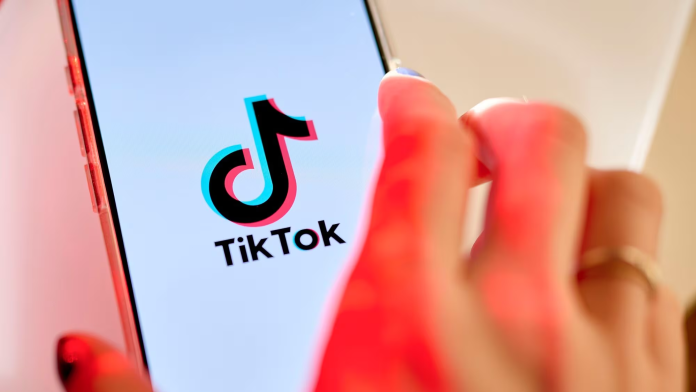After TikTok went dark in the United States in response to government intervention, many are left to wonder whether the popular social media app’s days are numbered in Canada.
On Sunday, millions of users in the U.S. were unable to access content on the platform and the app was removed from several online stores including Google’s and Apple’s.
TikTok confirmed Sunday afternoon that it was “in the process” of restoring service to American users of the app.
“We thank President Trump for providing the necessary clarity and assurance to our service providers that they will face no penalties providing TikTok to over 170 million Americans and allowing over 7 million small businesses to thrive,” a statement posted to X by an account affiliated with TikTok reads.
“We will work with President Trump on a long-term solution that keeps TikTok in the United States.”
Trump previously announced a plan to lift the “ban” on TikTok for 90 days once he takes office. The move would allow ByteDance, TikTok’s China-based parent company, additional time to find a buyer for the app’s U.S. operations.
A U.S. federal law, passed in April 2024 and signed by President Joe Biden, required ByteDance to cut ties with U.S. TikTok by Jan. 19 due to national security concerns. The company responded with a lawsuit citing First Amendment and other freedom of expression rights but it proved unsuccessful and the statute was upheld by the U.S. Supreme Court on Jan. 17.
In Canada, the federal government, in November 2024, ordered ByteDance to shutdown its TikTok offices in both Toronto and Vancouver over an undisclosed timeline. The decision was the result of a national security review of TikTok launched in September 2023.
On Jan. 17, TikTok Canada confirmed to CTV News that hundreds of full-time employees continued to work out of its Canadian offices.
‘A blunt solution to a national security problem’
Dr. Emily B. Laidlaw, an associate professor with the University of Calgary’s Faculty of Law and a Canada research chair in cybersecurity law, says Canada’s initial approach to TikTok is puzzling as it “only serves to make it more difficult to enforce Canadian laws against the company.”
Laidlaw says it’s key to note that U.S. legislation has not banned TikTok, but threatened a ban if ByteDance fails to divest its stake in TikTok. The additional step toward a potential ban allowed the Supreme Court to make its ruling, a decision that, according to Laidlaw, “certainly sidesteps the major free expression concerns.”
“I can’t overstate the ripple effect this is going to have on global internet policy and other countries that might look to pass similar laws, perhaps for other purposes.”
Laidlaw says there are legitimate national security risks associated with TikTok – “The volume of data collected about Canadians and the profiling and targeting enabled through TikTok is significant” – an issue further complicated by the fact the public isn’t aware of the full extent of the risks. “The wrinkle is that this is an issue with all social media platforms and we do not have sufficient laws to address any of it.”
Laidlaw warns against Canada following the U.S. footsteps.
“Even if similarly done as a divestiture, I think it is problematic because it is a blunt solution to a national security problem, when a scalpel approach is needed to balance the enormous freedom of expression implications.
“The answer is robust laws in the areas of online harms, privacy and artificial intelligence for all social media, which would include specific national security provisions.”
TikTok Canada challenges federal order, aims to keep offices
TikTok Canada is challenging the federal government’s order to shut down the Canadian operations.
“This order would eliminate the jobs and livelihoods of hundreds of dedicated local employees – who support the community of more than 14 million monthly Canadian users on TikTok,” said officials in a statement issued Dec. 10, 2024.
“We believe it’s in the best interest of Canadians to find a meaningful solution and ensure that a local team remains in place, alongside the TikTok platform.”
TikTok, as an international entity, says its increased transparency regarding how it protects the platform, citing its effort to bolster the frequency of reports it voluntarily publishes and the depth of data it discloses, with plans to share “more insights and updates about our ongoing trust and safety work” going forward.
Proceed with caution: A balcony with significant risk?
Dr. Nur Zincir-Heywood, a distinguished research professor and associate dean of research in computer science at Dalhousie University, says TikTok is high risk from both a security and privacy perspective, given the app’s history and inner workings.
“(In) today’s world, data is currency,” said Zincir-Heywood. “TikTok’s code is not public knowledge so how much and for what purpose of your data TikTok collects is unknown. Furthermore, TikTok’s parent company is Chinese, and their policies for using your data are not clear.”
“My message is, TikTok app is like a balcony, if you are on it, you can have a wonderful view, but this balcony is not safe so do it at your own risk if you choose to.”
Zincir-Heywood agrees with the federal government’s 2023 decision to ban TikTok from all government-issued devices, and believes “Canada should align herself with the U.S. (approach to TikTok) given our close relationship with our neighbour.”


